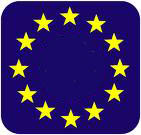EU bids to stamp out VAT fraud on phones and greenhouse gases
 Brussels - The European Union's executive on Tuesday proposed measures to stamp out VAT fraud on goods ranging from mobile phones to greenhouse-gas emission permits, saying that it costs the taxpayer billions of euros a year.
Brussels - The European Union's executive on Tuesday proposed measures to stamp out VAT fraud on goods ranging from mobile phones to greenhouse-gas emission permits, saying that it costs the taxpayer billions of euros a year.
The European Commission has been working on the issue for years, but gave it high priority after claims emerged last year that some fraudsters had begun targeting the bloc's flagship scheme for trading emissions permits alongside more traditional goods.
"Very recently, several member states have been confronted with carousel fraud related to greenhouse-gas emission allowances ... The very high mobility of these allowances and the very high amounts at stake are an important element," the commission said in a statement.
Under EU rules, business customers which buy a product from a supplier in their own country have to pay VAT to the supplier, and then claim it back from the government. They do not have to pay VAT if the supplier is a business in another EU country.
This has led to a system known as "carousel fraud," in which businesses in different EU states sell one another goods without paying VAT, but then use a dummy go-between company to claim the money back from their government as if they had paid it.
Traditionally, the fraud has covered small, high-value products such as computer chips, mobile phones and precious metals.
But last year, a number of EU member states reported that fraudsters had latched onto the bloc's scheme for trading permits to emit greenhouse gases to carry out similar scams.
That has led the commission, the EU's executive, to speed up proposals for a system under which EU governments would allow business suppliers not to charge VAT. Instead, the customer would pay the tax to the government themselves, and then claim it back.
Commission officials say that the system would close the loophole which allows fraudulent companies to claim back VAT which they have not in fact paid. Member states still have to approve the idea.
This "reverse-charge mechanism" would apply to computer chips, mobile phones, precious metals, perfumes and emissions permits.
Agreements on tax issues are notoriously difficult to reach in the EU because any one member state can veto a proposal.
Tuesday's proposal is for the reverse-charge system to be optional and temporary - making it at least theoretically less likely to run into a veto. (dpa)